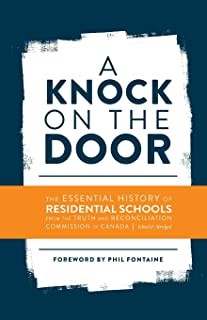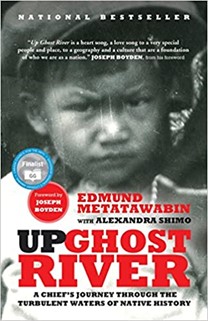Wondering what you can do to recognize The National Day for Truth and Reconciliation on September 30th?
You can listen, learn, and engage.
Listen to what the indigenous community is saying. There will be a wide range of perspectives with one common thread. To listen. If you enjoy podcasts, consider the University of Calgary podcast episode 126: Truth and Reconciliation.
The Banff Centre for Arts and Creativity hosted a Truth and Reconciliation Summit in 2016. Listen and watch the livestream on their YouTube channel.
You can learn. Learn about the history of our country. Read the Truth and Reconciliation Commission of Canada: Calls to Action report which was published in 2015. There are links on the Canadian government website to a variety of corresponding reports.
There are also a number of books that you can borrow from our local libraries as well as suggested reading lists provided by many larger libraries, including the Edmonton Public Library and the Vancouver Public Library. These lists include numerous authors, articles and books to read on this subject to educate and give perspective.
 |
A Knock on the Door - The Essential History of Residential Schools From the Truth and Reconciliation Commission of Canada
Add this to your reading list if you’re looking for a firsthand account and perspective from someone who experienced the residential school system.‘It can start with a knock on the door one morning. It is the local Indian agent, or the parish priest, or, perhaps, a Mounted Police officer. So began the school experience of many Indigenous children in Canada for more than a hundred years, and so begins the history of residential schools prepared by the Truth & Reconciliation Commission of Canada (TRC). Between 2008 and 2015, the TRC provided opportunities for individuals, families, and communities to share their experiences of residential schools and released several reports based on 7000 survivor statements and five million documents from government, churches, and schools, as well as a solid grounding in secondary sources.’
|
|
#IdleNoMore and the Remaking of Canada by Ken Coates If you witnessed the Idle No More protests but did not fully understand why they were happening, or what sparked the protests to begin, pick up this resource.‘Idle No More was the most profound declaration of Indigenous identity and confidence in Canadian history, sparked by Aboriginal women and their supporters, sustained by young Indigenous peoples, filled with pride and determination. When the drums slowed, a new and different Canada was left in its wake. Partially stunned by the peaceful celebrations, but perplexed by a movement that seemed to have no center and no leaders, most Canadians missed the point.’
|
|
 |
 |
Up Ghost River by Edmund Metatawabin and Alexandra Shimo
To learn about the importance of bearing witness and becoming whole again, read this memoir of a residential school survivor and First Nations Chief and his time in the St. Anne’s residential school located in northern Ontario.
‘Even as Metatawabin built the trappings of a successful life—wife, kids, career—he was tormented by horrific memories. Fueled by alcohol, the trauma from his past caught up with him, and his family and work lives imploded. In seeking healing, Metatawabin travelled to southern Alberta. There he learned from elders, participated in native cultural training workshops that emphasize the holistic approach to personhood at the heart of Cree culture, and finally faced his alcoholism and PTSD. Metatawabin has since worked tirelessly to expose the wrongdoings of St. Anne’s, culminating in a recent court case demanding that the school records be released to the Truth and Reconciliation Commission.’
|
Sign up for the TRC Reading Challenge. This self-described challenge is for those who genuinely care about the relationship between Aboriginal and non-Aboriginal people in Canada. It is for those who believe that improving this relationship requires meaningful, respectful, mutual dialogue, and that individuals cannot contribute to this dialogue unless you have first listened to the truths expressed by First Nations, Metis, and Inuit people. This challenge is extended to those people who would prefer to read the TRC Report themselves, and take the time to understand what was being expressed.
Coursera is facilitating an online course through the University of Alberta which is a 4 week, free, 100% online course that will educate you on this part of Canada’s history. Humber, an Ontario based college, also offers trainings on Truth and Reconciliation.
Engage with your community and the events that will be held for the Day of Truth and Reconciliation. There are online activities for more national recognition as well as in person events on a more local level.
Many schools will be participating in these events for the week surrounding September 30, and students may want to have open conversations about what they are learning and what emotions these teachings bring up.
There is no way we can change the past and the injustices that have happened but moving forward on a path of reconciliation is possible if action is taken. Moving forward requires steps in the right direction and if our communities can listen to each other, learn from each other and engage with each other in a respectful and understanding manner, we will be able to, together, take the steps that true reconciliation requires.
Bonnyville, AB - Thursday | September 23, 10:53 AM






